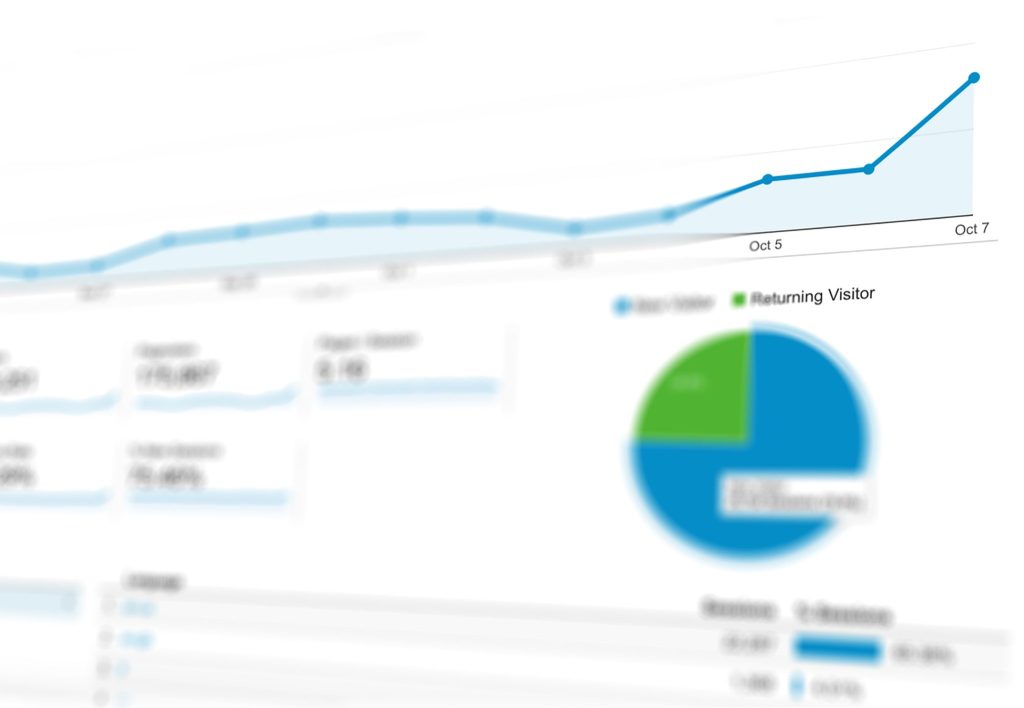If you want more people to visit your WordPress website, attract customers before they find your competitors, and ensure that traffic is ready to convert into sales, you need a powerful SEO strategy. WordPress is an excellent platform for creating SEO-friendly websites, but the key to success lies in understanding and implementing the best practices that align with Google’s evolving algorithms – and that means following an expert guide to SEO for WordPress websites.
With a market share of 91.9%, Google dominates the search engine landscape. To stand out, your WordPress site must tick all the right boxes, from technical performance to engaging, high-quality content. This guide from offers expert WordPress SEO tips, actionable insights, and tools to help you build a site that Google—and your customers—can’t resist.
Why SEO Matters for WordPress Websites
Search engine optimisation (SEO) ensures your website aligns with the practices Google uses to rank pages.
A well-optimised website:
- Increases visibility in search results.
- Drives organic traffic to your site.
- Enhances user experience.
- Builds credibility and trust.
- Generates long-term, cost-effective ROI.
Done right, SEO helps connect your site with people actively searching for your products or services. However, black hat practices (like keyword stuffing or using spammy backlinks) can result in penalties that tank your rankings. By staying updated on Google’s best practices and embracing new technologies, you can keep your WordPress site competitive.
Let’s dive into the tips and advice from our WordPress and SEO experts at Yellowball, to help you create a WordPress website that Google loves.
Expert SEO Tips for WordPress Websites
1. Start with Sound SEO Basics
WordPress provides built-in features to support SEO, but you need to set a strong foundation:
Check Website Visibility:
Go to Settings > Reading and ensure “Discourage search engines from indexing this site” is unchecked. This option is often enabled during development and can prevent your site from appearing in search results.
Secure Your Site:
Use HTTPS rather than HTTP. Secure sites are favoured by Google, and an SSL certificate is essential. Many hosting providers, like SiteGround or Bluehost, include free SSL certificates.
Create SEO-Friendly URLs:
Use concise, descriptive URLs with keywords. Avoid generic URLs like yourdomain.com/?p=123; instead, use formats like yourdomain.com/seo-tips.
2. Prioritise Mobile Friendliness
With 55% of global internet traffic coming from mobile devices, mobile friendliness is non-negotiable. Moreover, over 50% of smartphone users discover new companies and products through mobile searches.
How to Optimise for Mobile:
- Use responsive design to ensure your site adjusts to any screen size.
- Implement dynamic serving and separate mobile URLs if needed.
- Test mobile performance with Google’s Mobile-Friendly Test.
- Optimise load times by compressing images and enabling browser caching.
3. Use the Right SEO Plugins
WordPress plugins simplify SEO by automating key tasks and providing insights.
Some of the best WordPress plugins include:
- Yoast SEO: Ideal for optimising content, titles, and meta descriptions.
- Rank Math: Includes advanced features like schema markup and keyword tracking.
- ShortPixel: Compresses images without sacrificing quality.
- All in One SEO Pack: Provides XML sitemaps, social media integration, and more.
These plugins are essential tools for maintaining and improving your SEO strategy.
4. Format Content for Readability and SEO
Google uses content formatting to understand the structure and relevance of your pages. Well-formatted content enhances user and customer experience and boosts rankings.
Key Formatting Tips:
- Use an H1 tag for the main title and H2/H3 tags for subsections.
- Ensure titles and subheadings include relevant keywords naturally.
- Add meta descriptions for every page (150–160 characters).
- Craft descriptive slugs (e.g., wordpress-seo-tips).
Proper formatting makes it easier for both users and search engines to navigate your content.
5. Optimise Images for SEO
Images play a crucial role in engaging users and enhancing SEO. However, large, unoptimised images can slow down your site.
Steps to Optimise Images:
- Use descriptive file names (e.g., blue-widget.jpg instead of IMG1234.jpg).
- Add alt text with relevant keywords to improve accessibility and SEO.
- Choose lightweight formats like WebP for faster load times.
- Use image compression tools like Smush or Imagify.
Google’s focus on visual search and its Shopping tab makes image optimisation essential, especially for e-commerce websites.
6. Focus on Content Quality and Natural Language
Google’s algorithm prioritises content that matches search intent and delivers value. Keywords remain important, but the emphasis is now on creating natural, engaging, and reader-focused content.
Best Practices for Content Creation:
- Write conversationally, avoiding jargon and keyword stuffing.
- Target long-tail keywords to match specific queries.
- Use tools like AnswerThePublic or SEMrush to discover common questions and topics in your niche.
- Update old content regularly with new insights, examples, and statistics.
By focusing on E-E-A-T (Experience, Expertise, Authoritativeness, Trustworthiness), you’ll create content that resonates with both users and Google.
7. Leverage Internal Linking
Internal links guide users through your site and help Google understand its structure. A well-planned linking strategy improves navigation, distributes link equity, and enhances SEO.
Tips for Effective Internal Linking:
- Link to related pages within your content.
- Use keyword-rich anchor text that describes the destination.
- Avoid overloading pages with too many links.
- Create cornerstone content (like guides or pillar pages) and link related posts to it.
8. Improve Page Speed
Page speed is a confirmed ranking factor, and slow sites lose visitors. Google recommends web pages load in under 3 seconds—ideally 2.5—as every additional second increases bounce rates by 32% and cuts conversions by 7%.
How to Boost Page Speed:
- Optimise hosting: Choose providers like Kinsta or WP Engine for fast performance.
- Enable caching with plugins like WP Rocket.
- Use Content Delivery Networks (CDNs) to deliver content faster across regions.
- Minify CSS, JavaScript, and HTML with tools like Autoptimise.
9. Implement Schema Markup
Schema markup helps search engines understand your content and enables rich results (like FAQs or product reviews). Tools like Schema Pro or Rank Math simplify schema implementation.
Key Types of Schema:
- FAQ: Answers common questions directly in search results.
- Review: Displays ratings for products or services.
- How-To: Breaks down step-by-step instructions.
Adding schema improves visibility and increases click-through rates.
10. Secure Your WordPress Website
Google prioritises secure websites. In addition to HTTPS, ensure your site is protected from security threats:
- Use strong passwords and two-factor authentication.
- Install security plugins like Wordfence or Sucuri.
- Regularly update WordPress, plugins, and themes to fix vulnerabilities.
A secure site not only ranks better but also builds trust with users.
11. Create and Submit an XML Sitemap
An XML sitemap helps search engines crawl and index your site efficiently. Most SEO plugins generate sitemaps automatically. After creating one:
- Submit it to Google Search Console.
- Regularly update it when adding or removing content.
12. Monitor and Adjust Your Strategy
SEO is an ongoing process. Regularly track your performance using tools like:
- Google Analytics: Monitor traffic, behaviour, and conversions.
- Google Search Console: Check for crawl errors and keyword rankings.
- SEMrush or Ahrefs: Analyse backlinks and competitor strategies.
Avoid Common SEO Mistakes
While WordPress is an SEO-friendly platform, even experienced users can make mistakes that hinder performance. Here are seven common WordPress SEO pitfalls and how to fix them:
1. Ignoring Core Web Vitals
Google’s Core Web Vitals—Largest Contentful Paint (LCP), First Input Delay (FID), and Cumulative Layout Shift (CLS)—are essential metrics that measure your site’s speed, interactivity, and visual stability. Ignoring these can harm both rankings and user experience.
Fix: Use tools like Google PageSpeed Insights or Lighthouse to identify and resolve issues. Focus on improving page load times, minimising layout shifts, and optimising server response times.
2. Overloading Plugins
While WordPress plugins are powerful tools, too many can slow your site, increase security vulnerabilities, and cause conflicts. Each plugin adds code that affects performance.
Fix: Audit your plugins regularly and deactivate any unnecessary ones. Choose lightweight, multipurpose plugins like Rank Math that consolidate several SEO functions into one.
3. Duplicate Content
Having identical or highly similar content across multiple pages confuses search engines and can lead to keyword cannibalisation, where your pages compete against each other in search results.
Fix: Use a tool like Screaming Frog or Google Search Console to identify duplicate content. Consolidate similar pages, use canonical tags, or rewrite content to differentiate it.
4. Not Optimising for Local SEO
For businesses serving specific locations, neglecting local SEO means missing out on potential customers. Mistakes include not claiming a Google Business Profile, omitting location-specific keywords, or ignoring local schema markup.
Fix: Optimise page titles, meta descriptions, and content with location-specific keywords. Claim and update your Google Business Profile and use plugins like Yoast SEO to implement local schema markup.
5. Overlooking Image Optimisation
Large, uncompressed images and missing alt text can harm your site’s speed and accessibility. Search engines rely on alt text and file names to understand image content.
Fix: Compress images with tools like Smush or ShortPixel before uploading. Add descriptive alt text with keywords and use meaningful filenames (e.g., blue-widget.jpg instead of IMG1234.jpg).
6. Ignoring Broken Links
Broken internal or external links frustrate users and reduce your WordPress website’s crawlability. These often occur as content is updated, removed, or moved.
Fix: Regularly check for broken links with tools like Broken Link Checker or Google Search Console. Redirect old links to relevant pages or remove them entirely.
7. Forgetting to Update Old Content
Outdated content on your WordPress website can lose relevance and rank over time, especially if competitors are producing fresh material. Neglecting to refresh old posts is a missed opportunity.
Fix: Conduct regular SEO content audits and update older posts with new insights, current statistics, and refreshed keywords. Highlight updates to show search engines that your content remains relevant and valuable.
SEO for WordPress FAQs
WordPress is a popular content management system (CMS) that powers over 43% of all websites worldwide. It’s user-friendly, customisable, and offers a vast library of themes and plugins, making it ideal for businesses of all sizes. Whether you’re building a blog, an e-commerce store, or a corporate website, WordPress provides the flexibility and tools needed for success.
Yes, WordPress is known for being exceptionally SEO-friendly. It includes features like customisable permalinks, responsive themes, and plugins like Yoast SEO and Rank Math that make optimising your site easy. However, SEO success depends on proper implementation.
SEO plugins like Yoast SEO, Rank Math, and All in One SEO Pack help streamline optimisation tasks. They assist with: Optimising meta descriptions and title tags, generating XML sitemaps, managing schema markup and improving readability and keyword focus.
It’s essential to regularly update WordPress, along with your themes and plugins, to ensure security, compatibility, and optimal performance. Updates also help you take advantage of new features and SEO improvements.
Absolutely! With plugins like WooCommerce, WordPress is arguably the best platform for e-commerce businesses in the UK. It supports features like secure payment gateways, product management, and inventory tracking.
A WordPress SEO audit examines your site’s performance, technical health, and optimisation practices. It identifies issues like slow page speed, broken links, or duplicate content that may impact your rankings. Regular audits are essential to stay competitive.
Page speed is critical for both user experience and SEO. You can improve your site’s speed by:
Optimising images with tools like Smush, enabling caching with plugins like WP Rocket, and choosing fast, reliable hosting.
Why Choose Yellowball for WordPress SEO?
Optimising your WordPress site for SEO can be complex, but you don’t have to tackle it alone. As a leading WordPress web development and SEO agency in London, Yellowball specialises in creating high-performing websites tailored to your business needs, including SEO services for ecommerce. From technical and content SEO audits to content strategy and PPC services, our team provides end-to-end solutions that help you dominate search results.
Ready to make Google love your WordPress site? Talk to our SEO consultants today and turn your website into a high-conversion sales-driving growth engine for your business.
Read more: The importance of SEO in web design processes and How to improve SEO on WordPress









